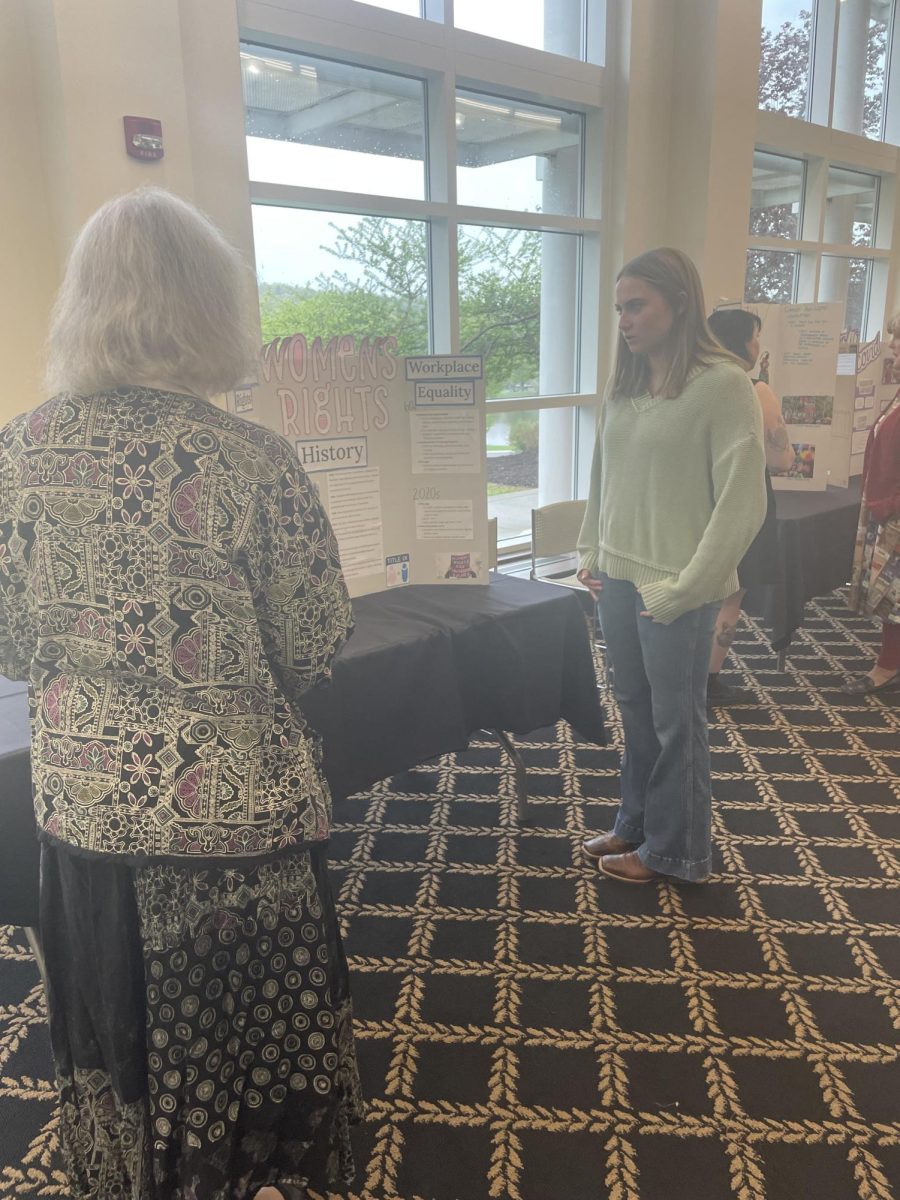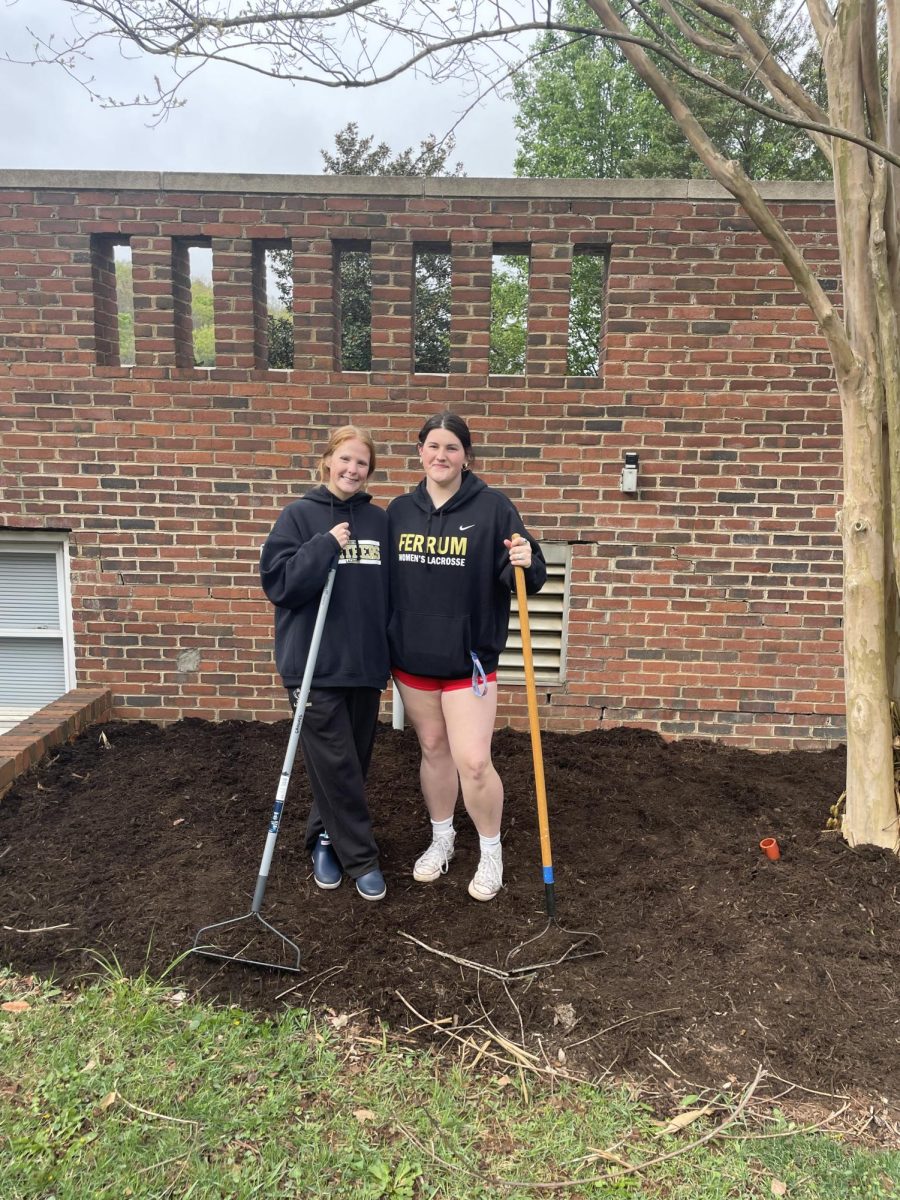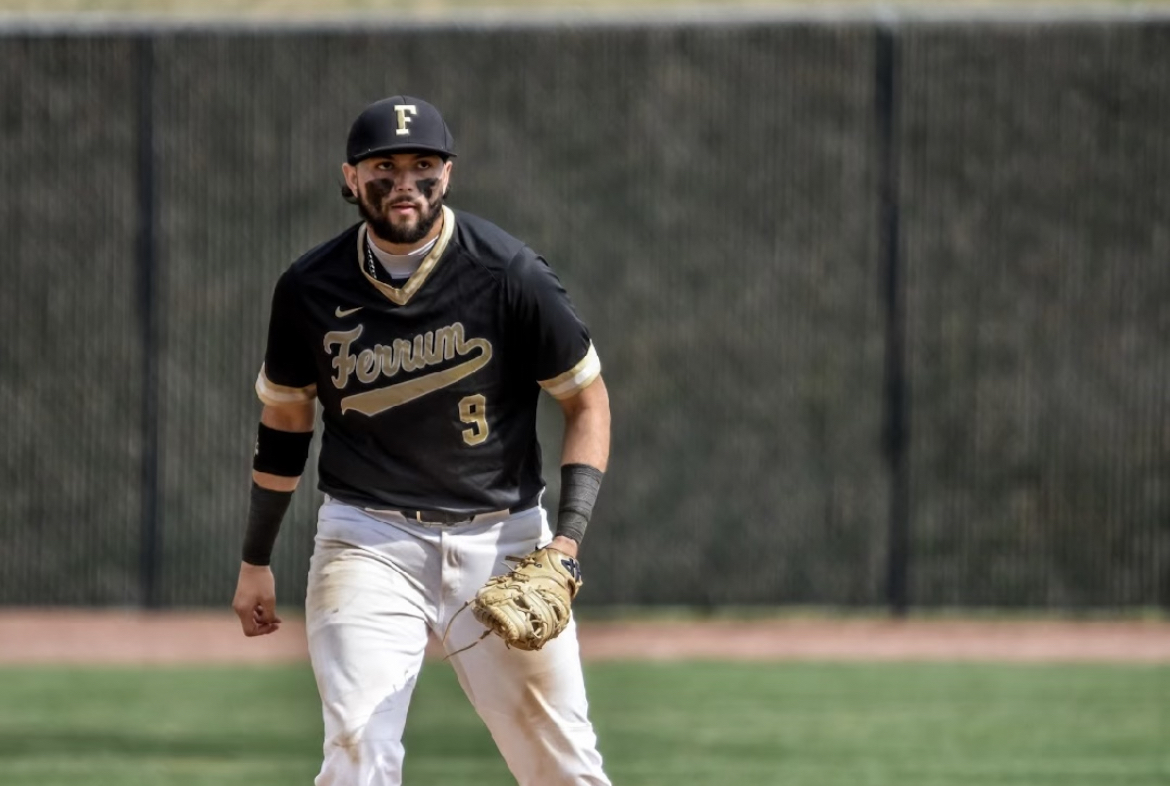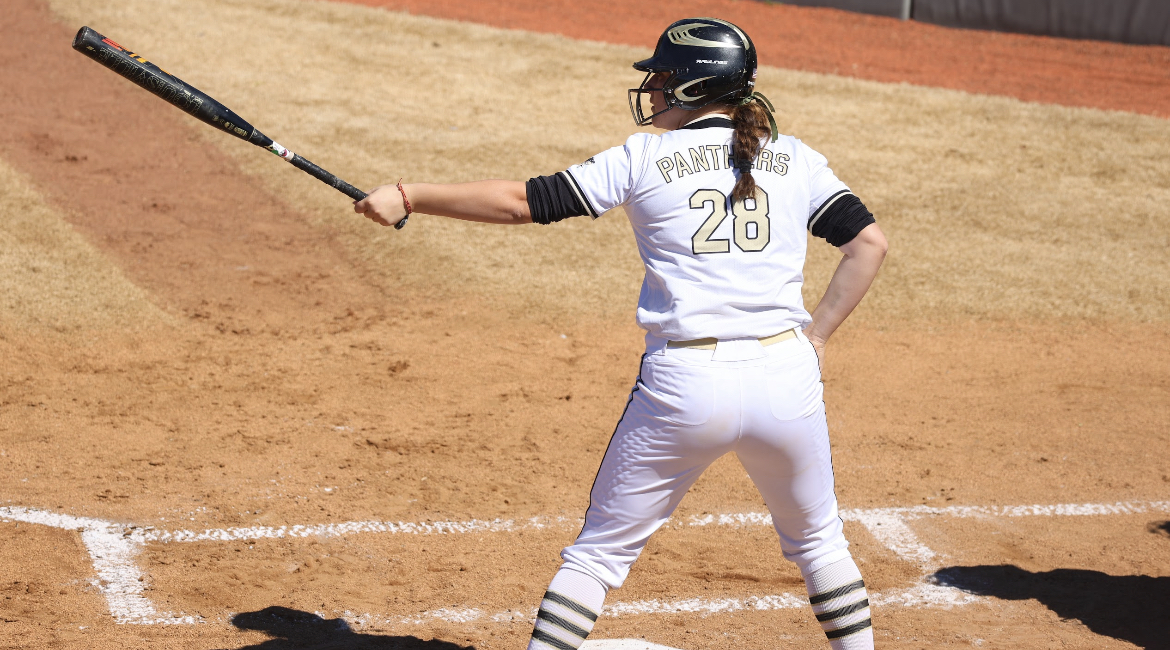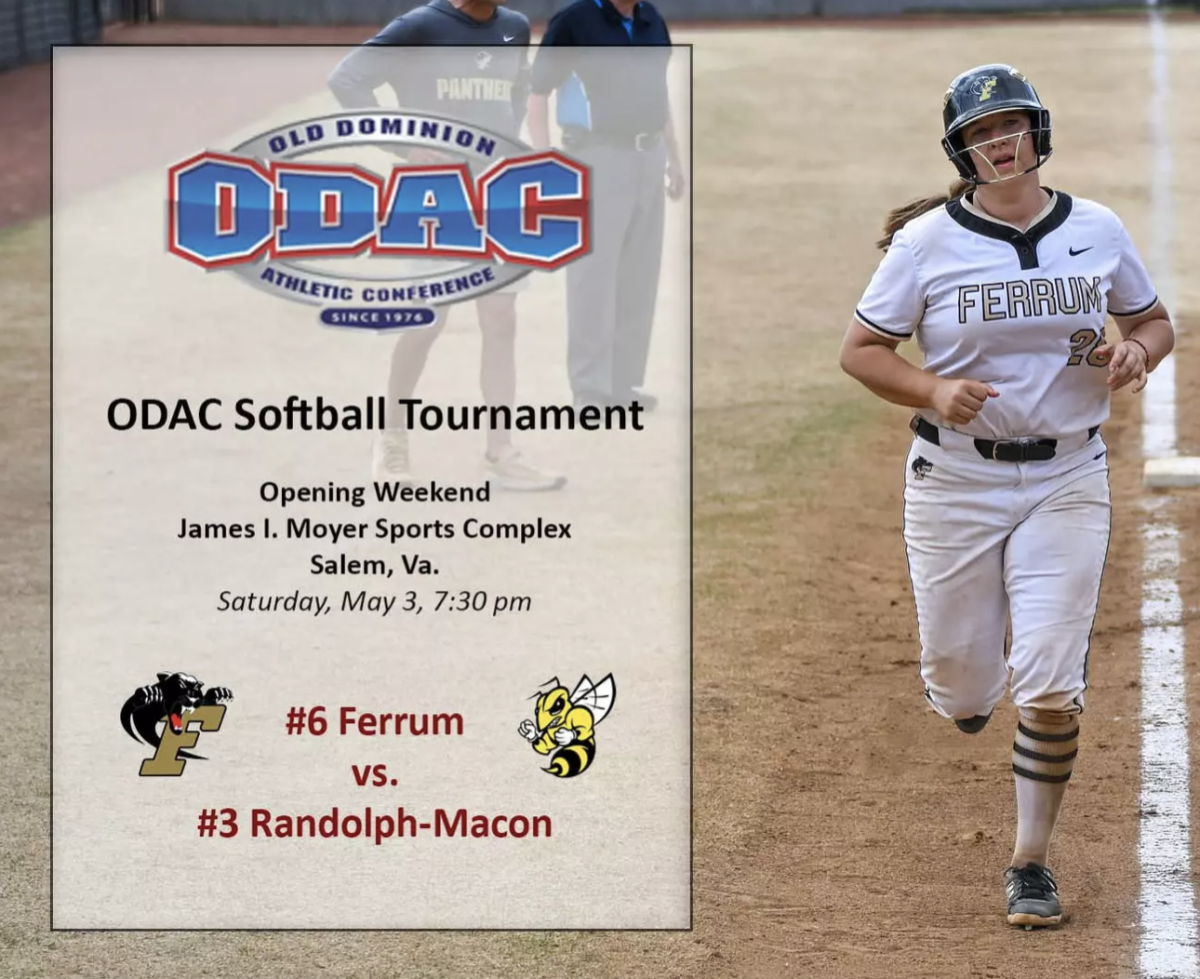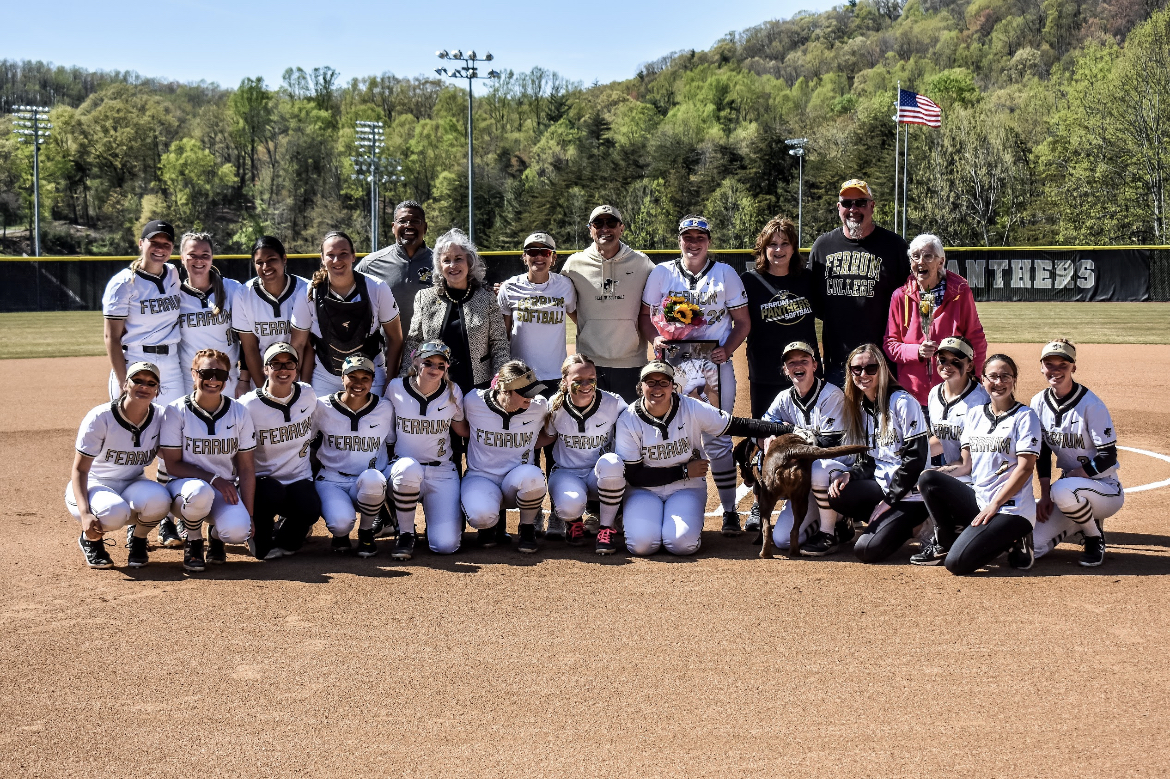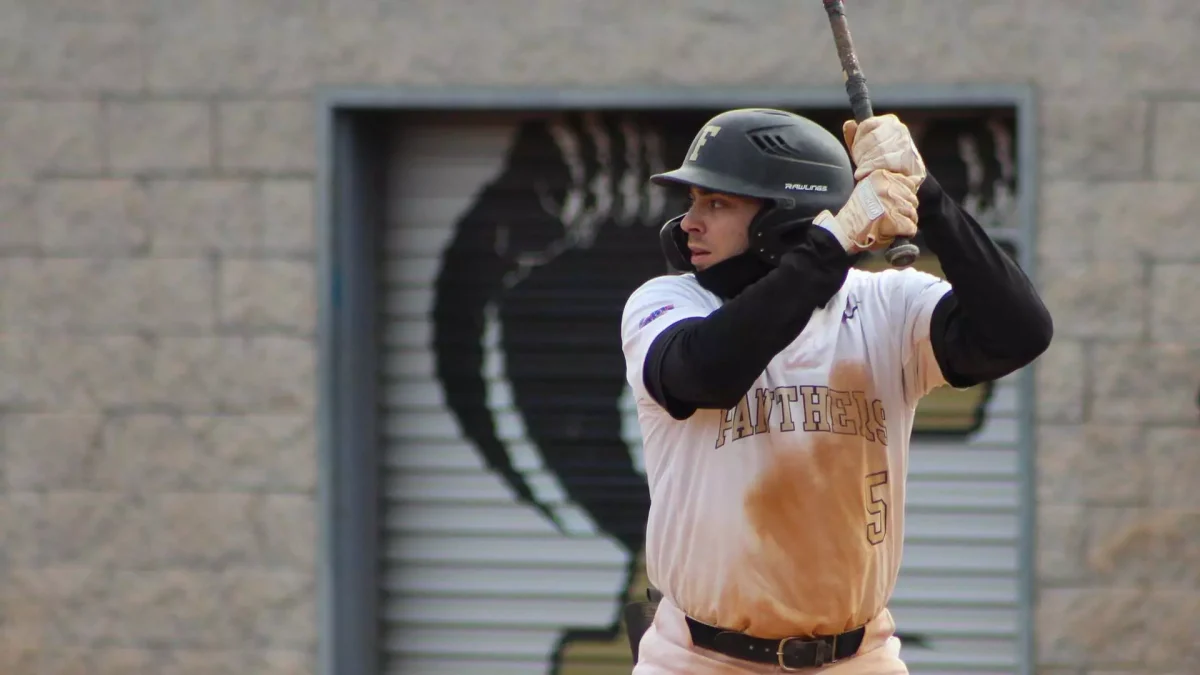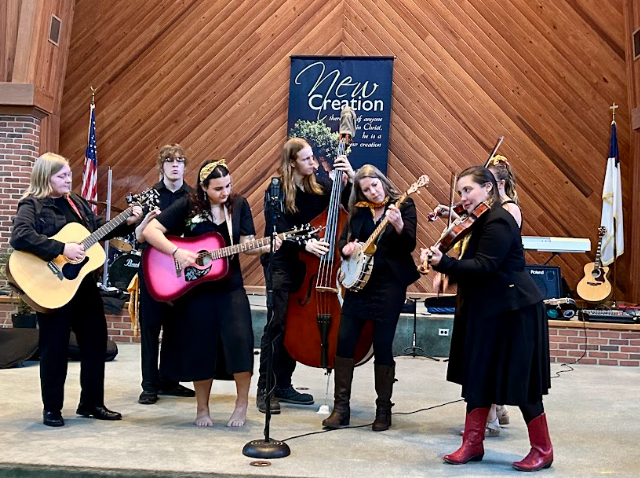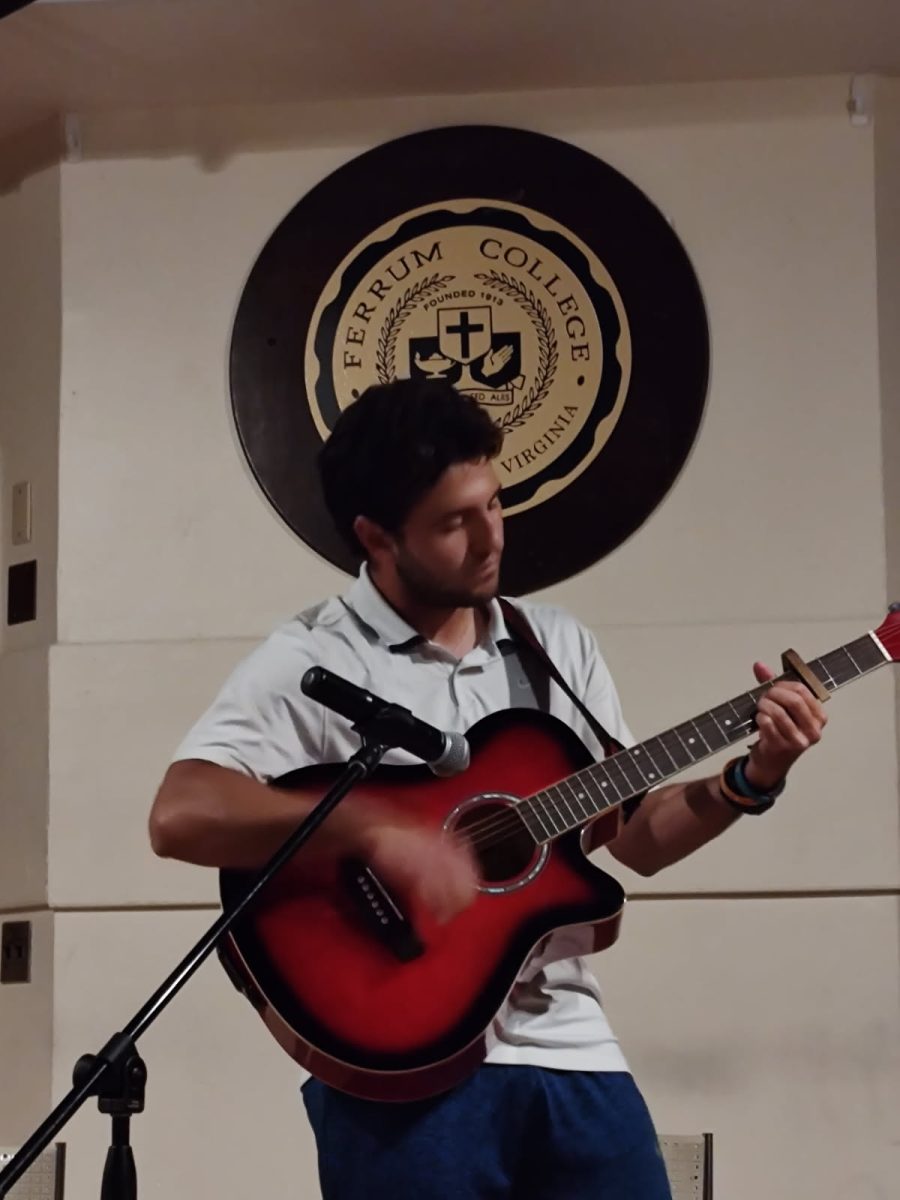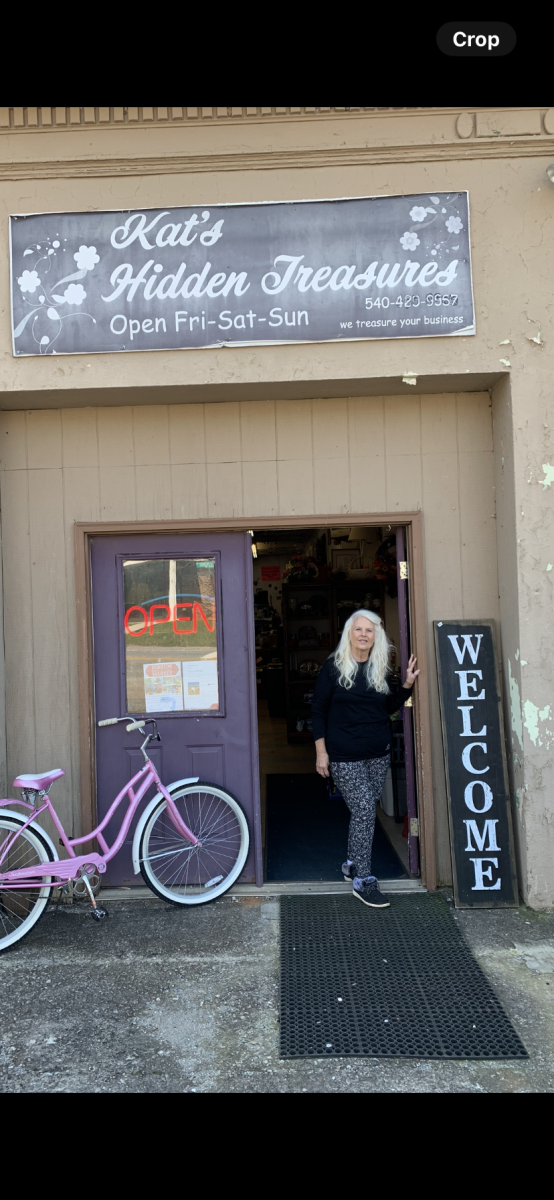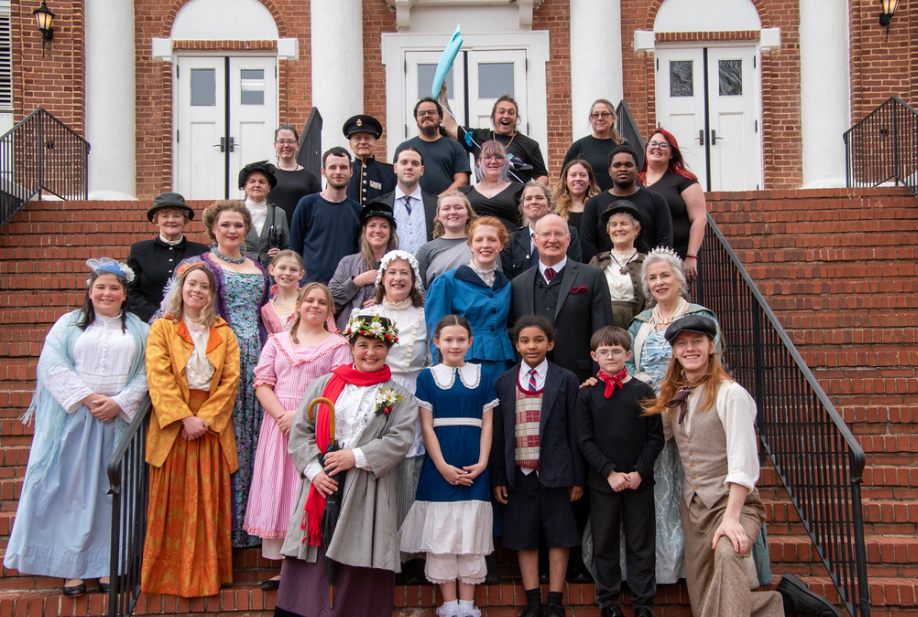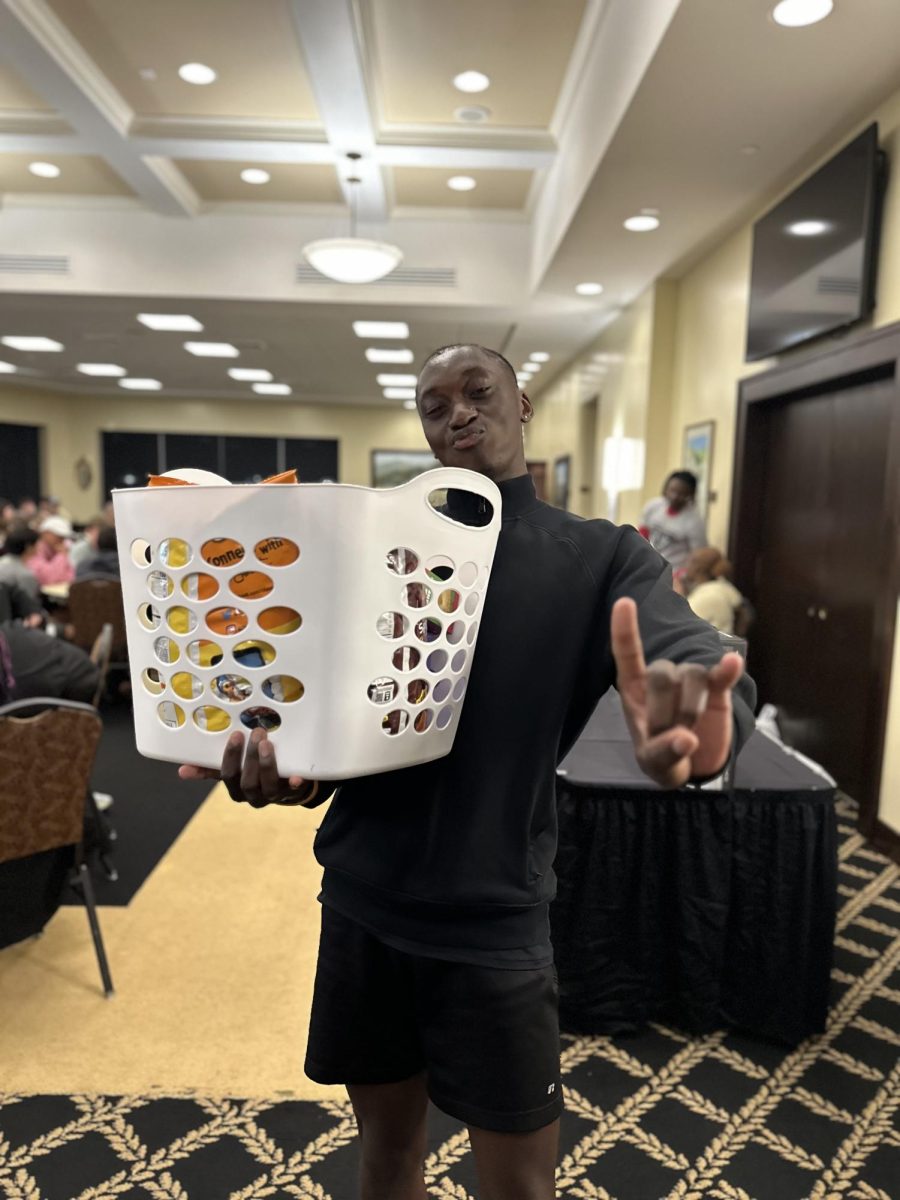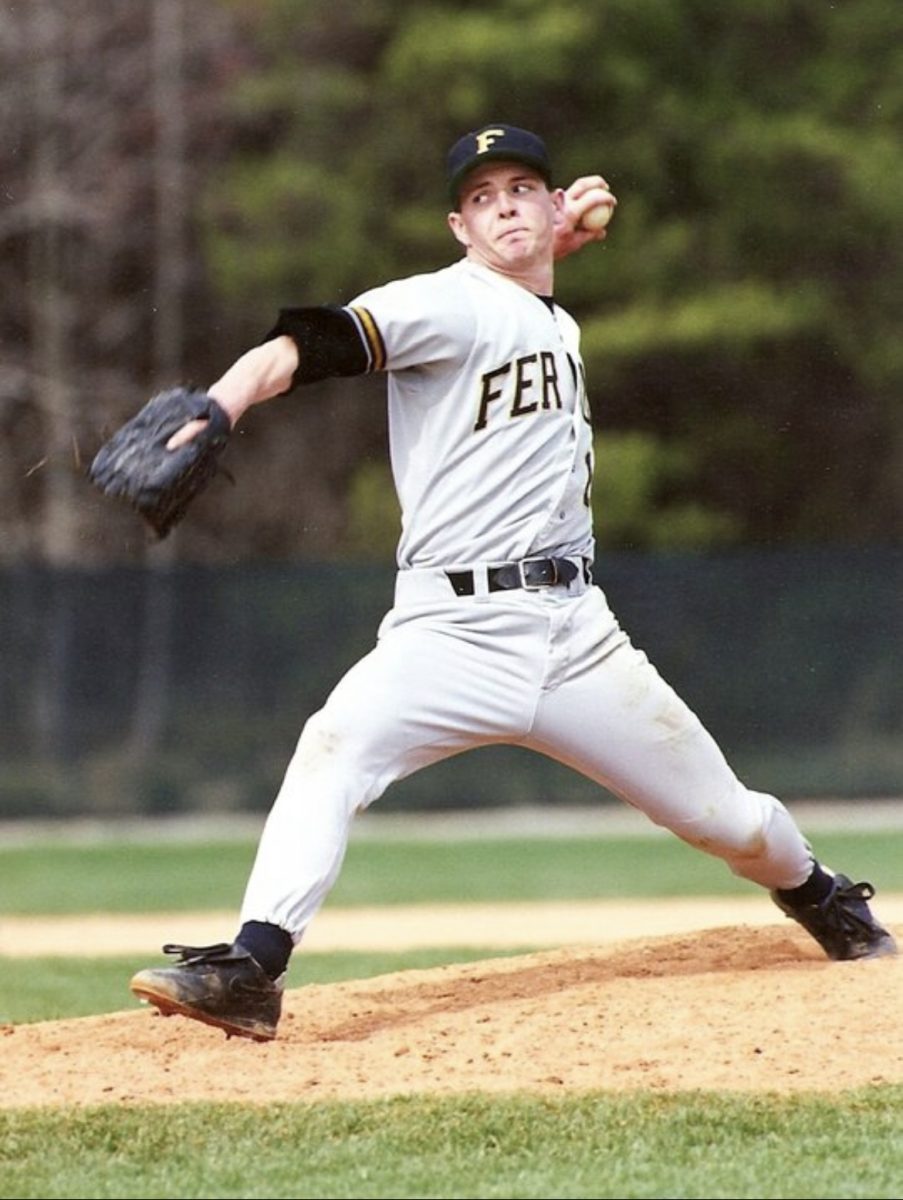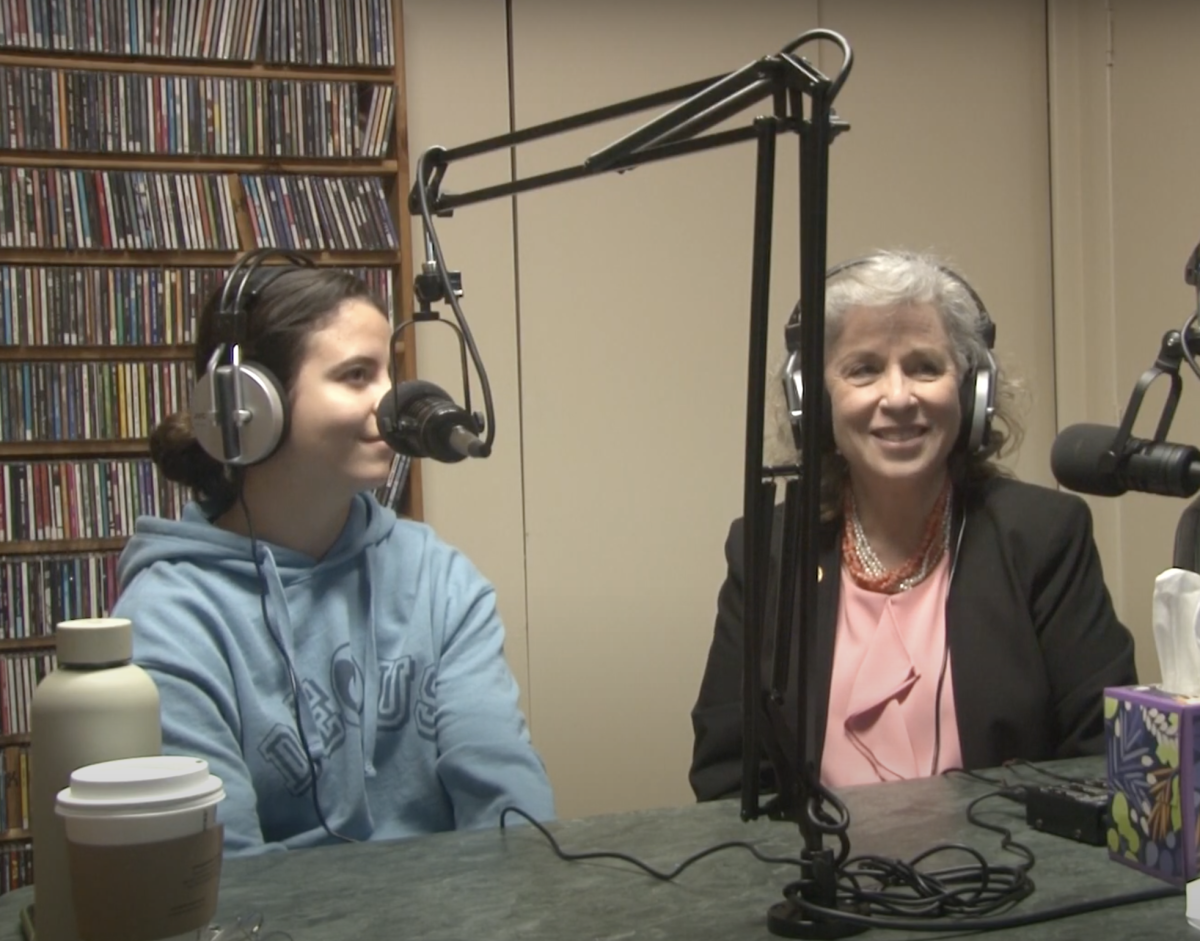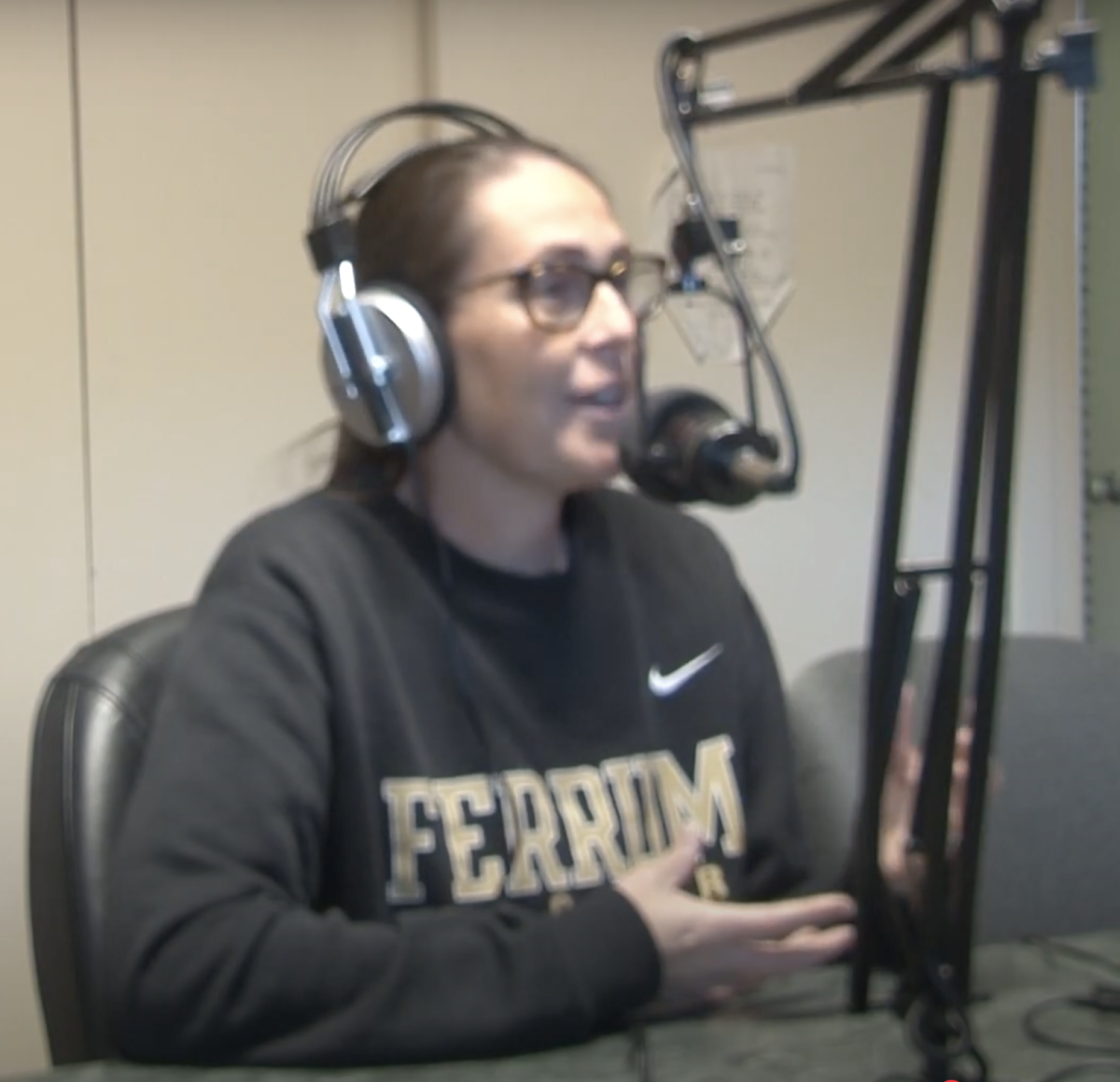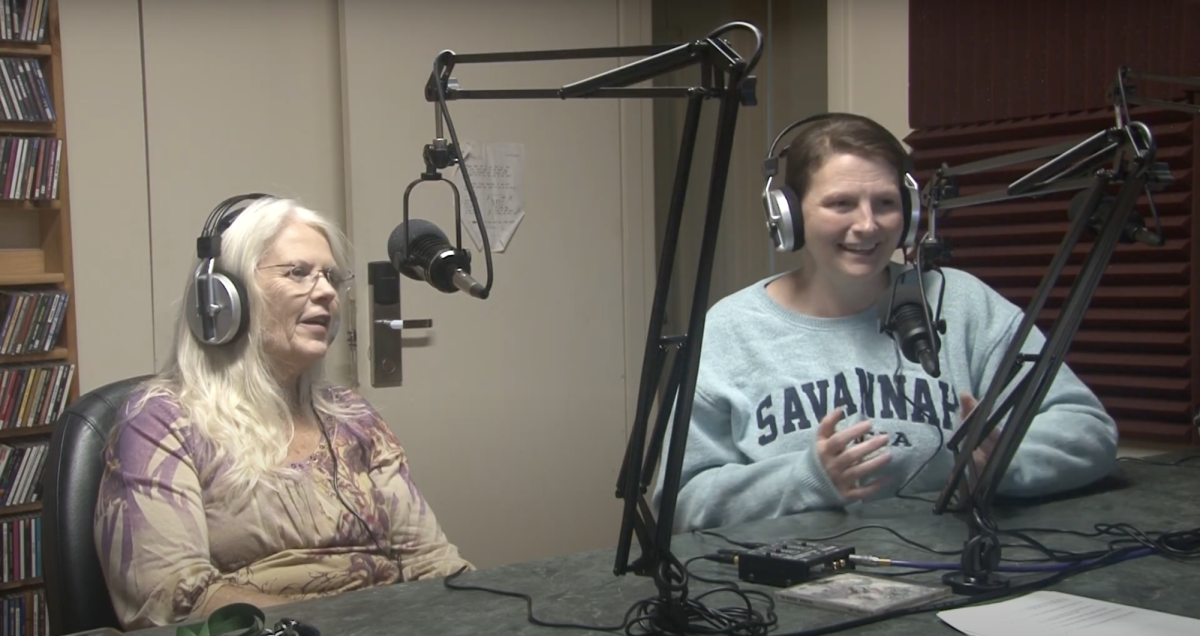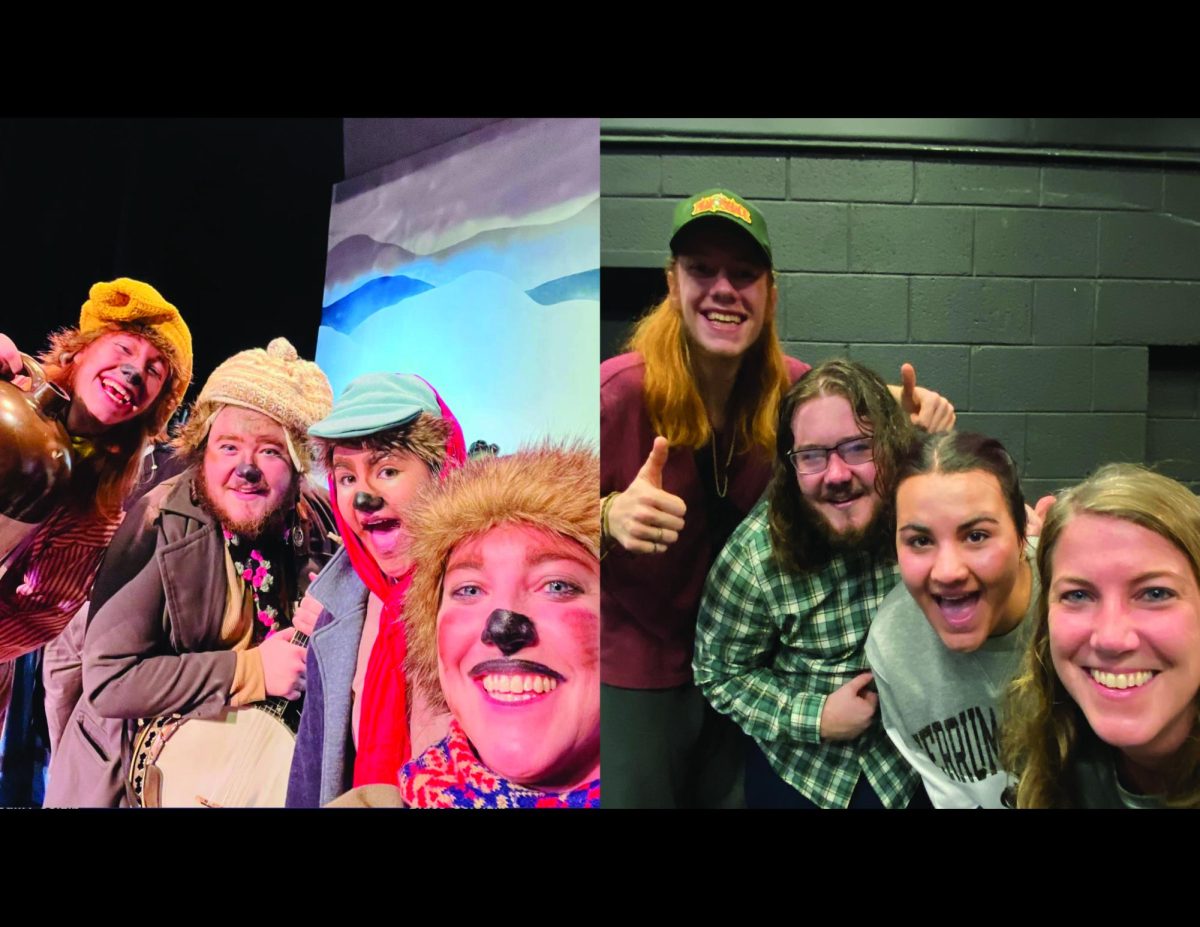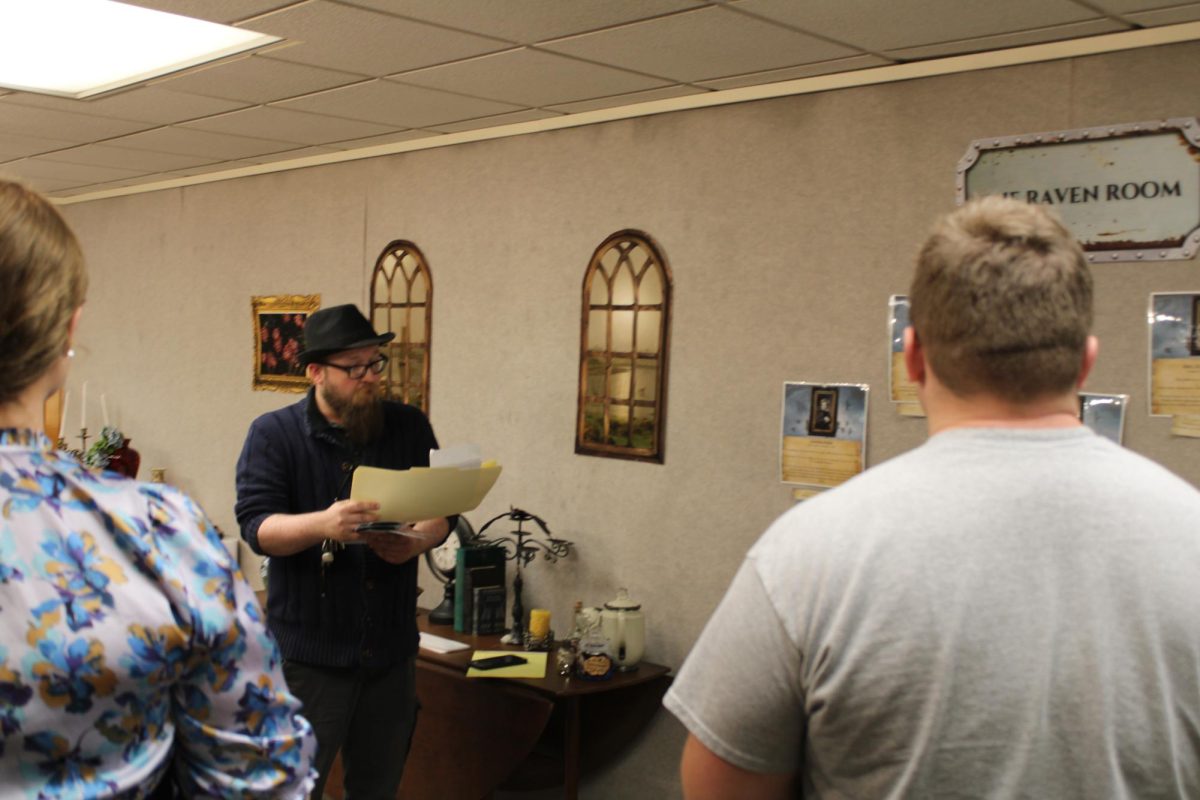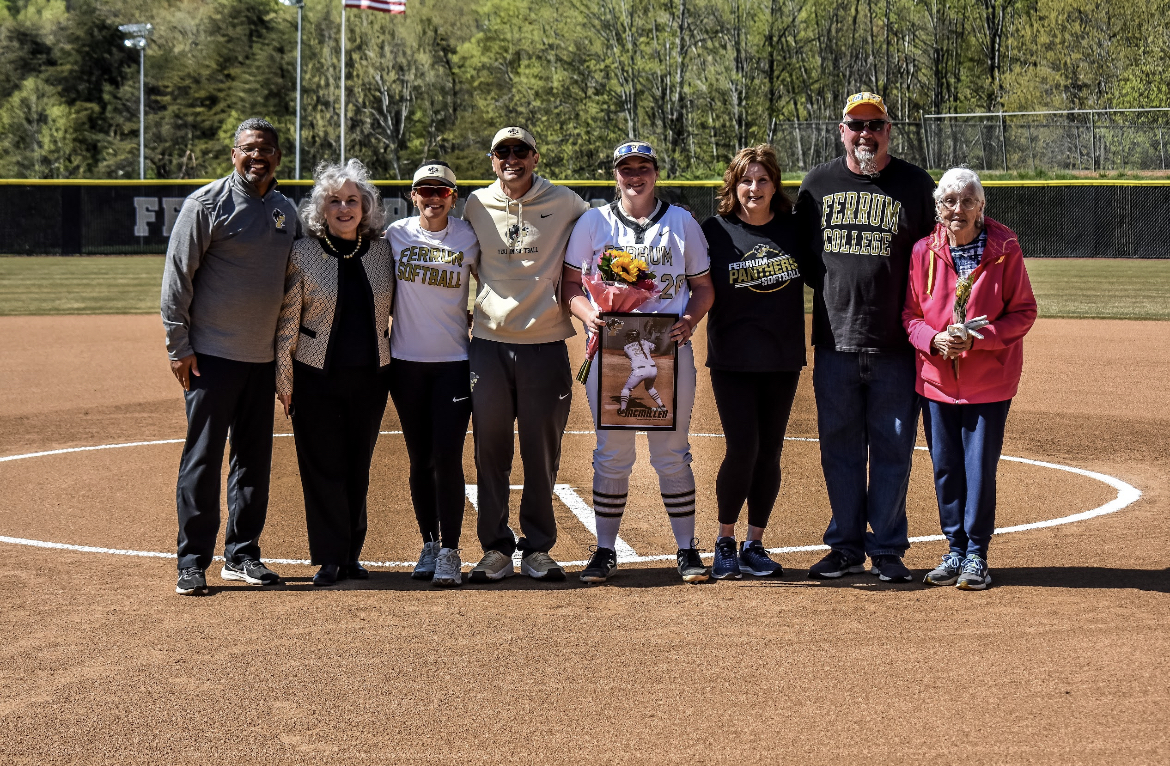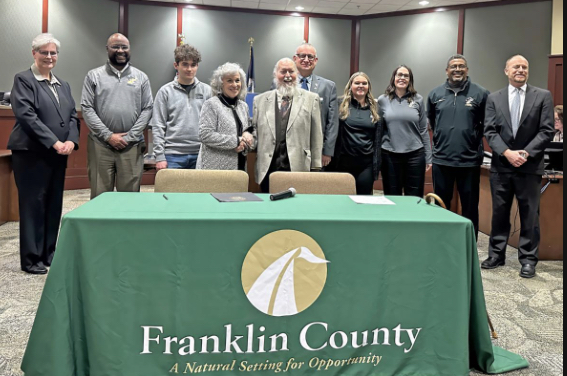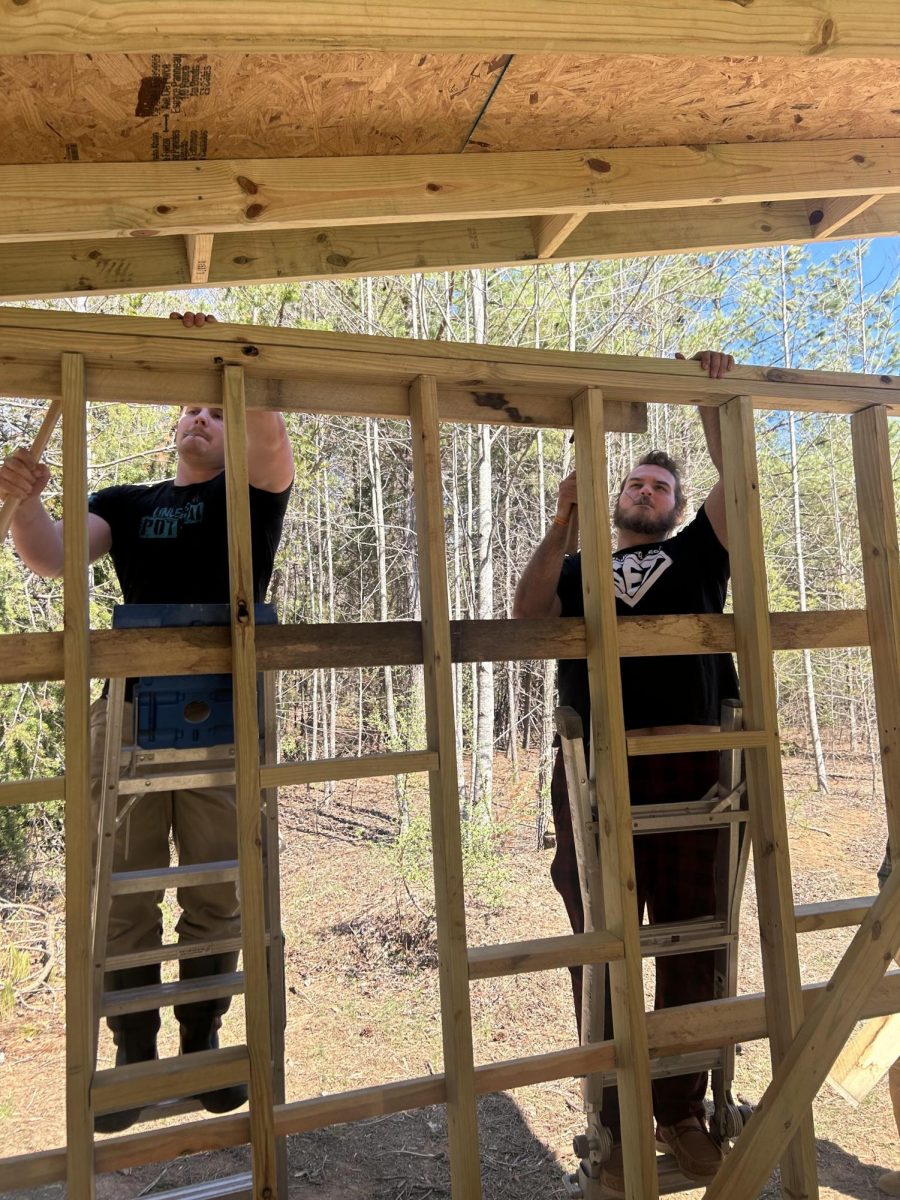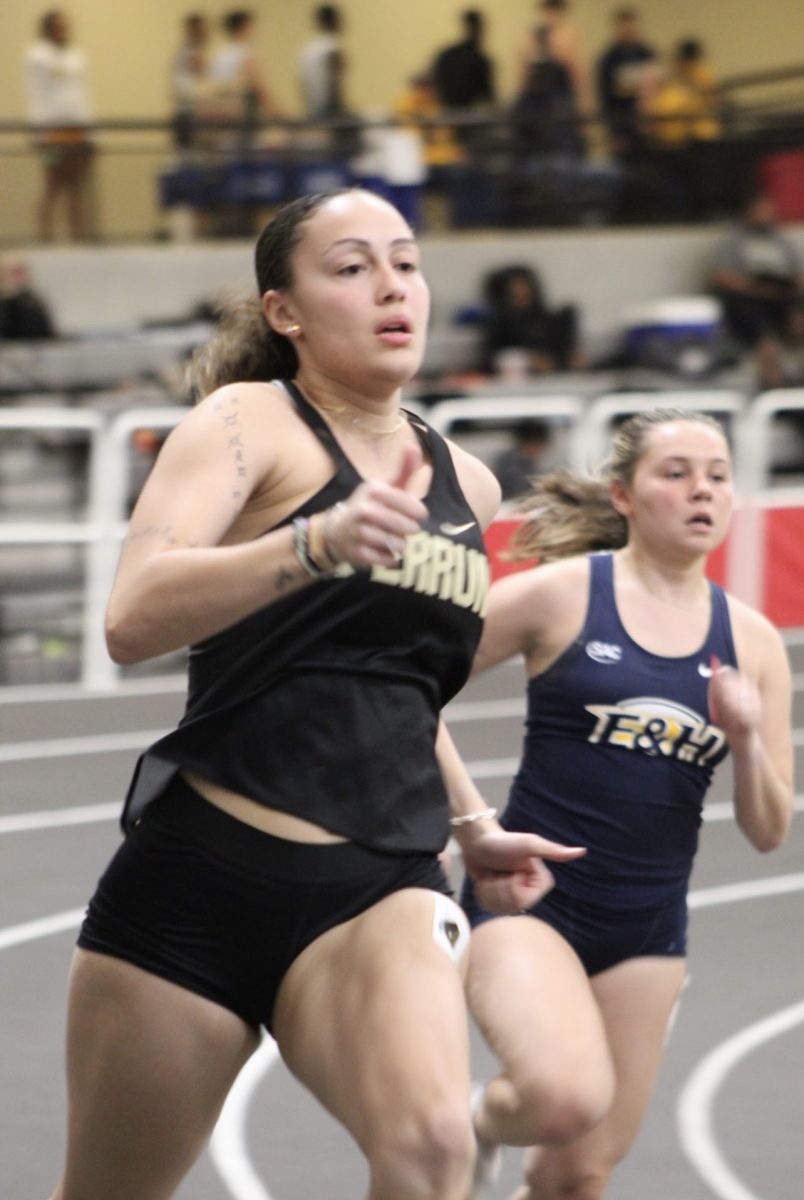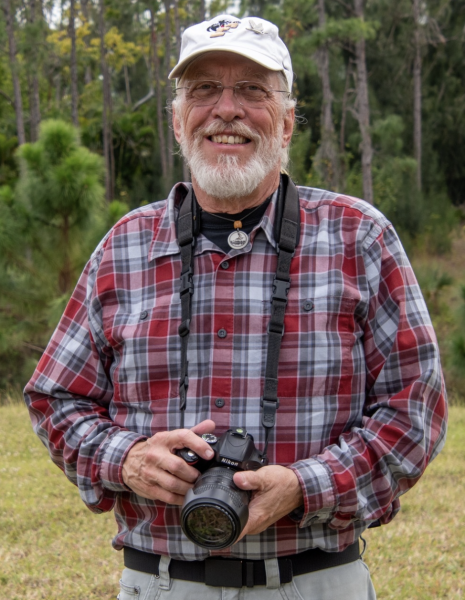When the members of the rock band Kiss decided to remove their make-up in 1983, it revealed four average musicians who made one of the biggest marketing blunders of their careers.
When the Frogtown Hollow Jubilee Jug Band members remove their make-up after an Emmet Otter performance, it reveals four seasoned musicians who have been playing together in various incarnations for months, and in some cases years.
Those musical relationships, band members say, have not only allowed the players to put together the tunes in a short amount of time, it has allowed them to take the music deeper and with more confidence than they might otherwise. When they step on stage, the chemistry is palpable, and the players say the difference is both their shared, rural upbringings as well as their shared–and individual–musical experiences.
It’s Day 5 of a 10-show run, and the stage lights are still warm from the afternoon’s performance. The final patron has been escorted from the building, and the post-show photo-ops have been snapped. The company has removed make-up, hung up costumes, and is waiting back stage for the final cue of the afternoon–the one that says they can go home for the day.
As they wait, members of the Jug Band take a moment to talk about the on-stage connection and rapport they feel during the performances.
Django Burgess, freshman, plays the role of Wendell Porcupine; Stewart Werner, junior, plays the part of Charlie Muskrat; Emily Walker, junior, is Emmet Otter; and Rachel Blankenship-Tucker, assistant director, takes on the identity of Harvey Beaver. They have all worked with each other in various ensembles on campus, and they say that experience has made all the difference.
“The harmonies are so practiced,” Walker says. “There are certain songs–not even with the Jug Band but with the company–like I know that Stewart is going to hit that seventh note. So if I hit something that corresponds to that, then it just flows.”
Werner says already knowing and performing with each other has allowed them to come in with confidence and faith in each other.
“We just know where everybody’s strengths lie,” he says. “I’ve worked with these folks before, and I know that they come through.”
Walker says having that connection allows her to anticipate the live moment.
“I’m so attuned to their voices,” she says. “I can feel where they’re going to go, and if there’s an idea about something, I know how to work with them, where they’re looking, and what they can see.”
All four members have at one time or another played in Orchestra Appalachia, a campus ensemble that has toured regionally and played at the Bristol Rhythm and Roots Reunion and the IBMA’s in Raleigh, to name a few. To Burgess, the musical roles they assume in Orchestra Appalachia have informed those in the Jug Band.
“Our places up on stage mirror what we do in Orchestra Appalachia pretty well,” he says. “Rachel plays the washboard, which has the same chug and the same feel as her playing the claw hammer banjo in Orchestra Appalachia. She keeps the song moving and keeping that heavy beat.”
For his part, Burgess usually holds down part of the low end in the Jug Band.
“I’m usually playing my jug on one and three and in different parts of the music changing it up to give it a different groove, which is what I’d be doing in Orchestra Appalachia on the upright bass,” he says.
And he says Walker, having the lead role of Emmet Otter, is still holding her place as the lead singer and person carrying the melody line.
“So it feels comfortable being up on stage,” Burgess says. “It doesn’t feel like we’ve been put into much of a different situation.”
The idea of the claw-hammer banjo and the washboard having the same roles is a lightbulb to Blankenship-Tucker.
“I never even thought about that until this moment, but you’re right,” she says. “That’s really cool.”
What she has thought about, however, is how comfortable she feels in the midst of the other three in the quartet.
“It feels good to know you can trust other people,” she says. “It feels good to know the bond you already have as a group–you know how each other works; you know how they think. You know what they are going to bring to the table.”
Blankenship-Tucker says that to be able to fall into place and be the Frogtown Hollow Jubilee Jug Band is incredible.
“I trust the others will be there vocally, and I know we’re going to be there musically for one another as well,” she says. “Not that I’ve spent years of my life playing the washboard, but I know what I bring to the table–my work ethic, my knowledge of when to be loud and soft. And I know the other musicians in the group are going to bring the same kind of natural intuition to that as well.”
But it’s more than just that they’ve played together in previous iterations. Even though they are from different towns–Walker from Snow Creek, VA; Burgess from Danbury, NC; Blankenship-Tucker from Woolwine, VA; and Werner from both Callaway and Rocky Mount, VA–they are all from the same place: Small-Town, Appalachia.
Of the four, Burgess hails from the smallest area with a population of 141, and by comparison, Werner’s Rocky Mount is a veritable metropolis with a population of 4,990.
Nonetheless, the quartet, prior to meeting on campus, spent years entrenched in the music of Appalachia. Listening, playing, singing. Even when Burgess picks up the electric bass for his band back home, the roots of Appalachian influence come through.
They all come from musical families of one sort or another. Werner’s father plays in the regionally touring Harwell Grice Band, Burgess’ dad picks banjo in the group Terra String.
“My dad has played with many different musicians and groups,” Burgess says. “His mother was a piano teacher, and my late grandfather on my mom’s side also played banjo.”
Walker traces her musical lineage back several generations.
“Daddy grew up playing music,” she says. “He used to travel in a bluegrass band with my grandfather. My grandfather had a band called the Timber Ridge Ramblers. It was a family affair.”
Blankenship-Tucker’s mom played and still plays upright bass around the region (she’s also in the show as Penelope Possum), and Blankenship-Tucker recalls performing with both mom and sister, Maggie Blankenship.
“We used to play in a family band together called Tenbrooks,” she says. “I played in that band for long time. That’s one of the reasons I feel so connected to Emmet Otter’s Jug-Band Christmas in the first place. It’s clear that the Jim Henson creation is based for the area that I’m in. It just fits perfectly.”
For Walker, the show’s music is an extension of what she already knows and holds dear.
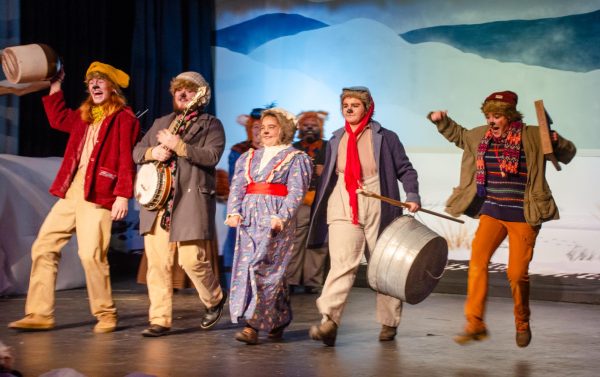
“Favorite music? Bluegrass and Old Time,” she says. “Folk music. The Appalachian music. I love the history behind it. I love the stylistic elements of it.”
She says that all those ingredients have played nicely into what they do for the production.
“Its just the style of the music in the show,” she says. “The music in the show reflects the music of Appalachia. And it’s kinda set in that rural setting and embodies the same visions and values.”
Walker pauses momentarily and reflects. She says the show hits her on an emotional level as well.
“A lot of folks around Appalachia don’t have a lot of money,” she says. “I grew up having to watch my daddy hock stuff so he could get us Christmas presents. I know how that feels. I know what it’s like having one of your prized possessions taken away so you can do Christmas. I know what it’s like to be poor.”
The somber tone doesn’t last long.
“And I think there’s still the joy that they (the Otters) have as a family,” Walker says. “Ma and Emmet–what they have doesn’t come from money, and it’s something that money can never give, and I know what that’s like. There’s still laughter. There’s still joy in the hard times.”
That joy is something the Jug Band has found for themselves as well. Each has received various gifts that the show has bestowed upon them.
For Blankenship-Tucker, who is usually in a position of authority with the students, the lines between those divisions have faded.
“It’s just the Frogtown Hollow Jug Band,” she says. “Even when I’m rehearsing, I’m Harvey. That’s just how it is. This is kind of wild, but I’ve kind of always idolized Emmet Otter. Even though this is my friend and student, Emily Walker, she’s Emmet Otter! I’m in a band with Emmet Otter! It’s like POW! (makes gesture of head exploding).”
Walker’s gift has come in the form of new experience and deepening friendships.
“It’s been great for really never having done a production before,” she says. “I’m really very honored and very blessed to be able to be able to work on this one with such good people.”
Werner says the influence of the production will show up in his banjo playing.
I’m basically playing rhythm, which is not something that Scruggs-style banjo is conducive for,” he says. “I’ve had to develop somewhat of a unique style to play for this. It’s not something that gets seen very often–rhythm banjo.”
The results are similar for Burgess, who also doubles with Werner as part of the Riverbottom Nightmare Band. In that iteration, Burgess takes on the roll of a rock drummer.
“I’ve given it (drumming) a shot once or twice but never really given it much practice until now,” Burgess says. “I can tell it’s already affected my guitar playing. It’s made it more percussive–and having to keep up with the singers on stage in real time and the pianist as vocals slow down–and to be able to stay with everybody–has increased my time feel-ability and my ability to work around what other people are doing.”
Werner looks around. Most everyone has gone now. The stage lights have cooled. Make-up stained baby wipes litter the dressing room, and the soft sound of a broom brushes across the floor. The only thing remaining from the day’s performance is an echo of the river meeting the almighty sea, a reference to the show’s closing number.
“I think it’s interesting how many different places we’ve come from musically and finding a way to mesh everybody together like that,” Werner says. “What’s also been fun is approaching this stuff in a manner that is going to reflect what people remember from the original show and also find a way to kind of make this our own.”
There are four performances left of the college’s production of Emmet Otter’s Jug-Band Christmas:
Today at 2 p.m.
Thurs., Dec. 14, at 2 p.m.
Sat., Dec. 16, at 7 p.m.
Sun., Dec. 17, at 2 p.m.
Tickets may be ordered by clicking here.



